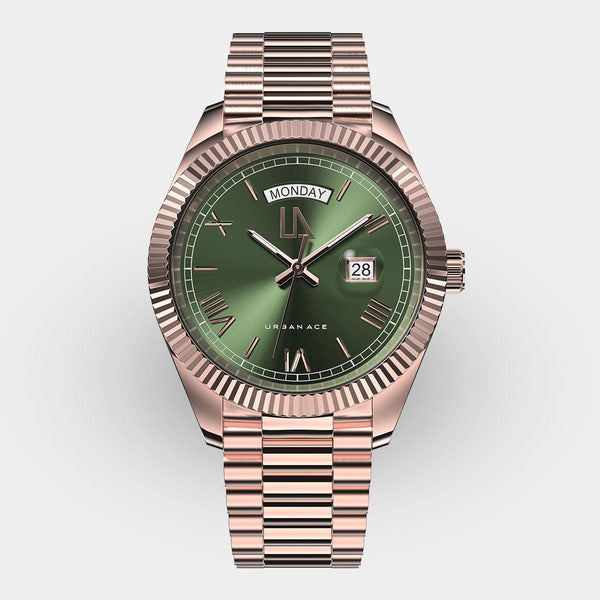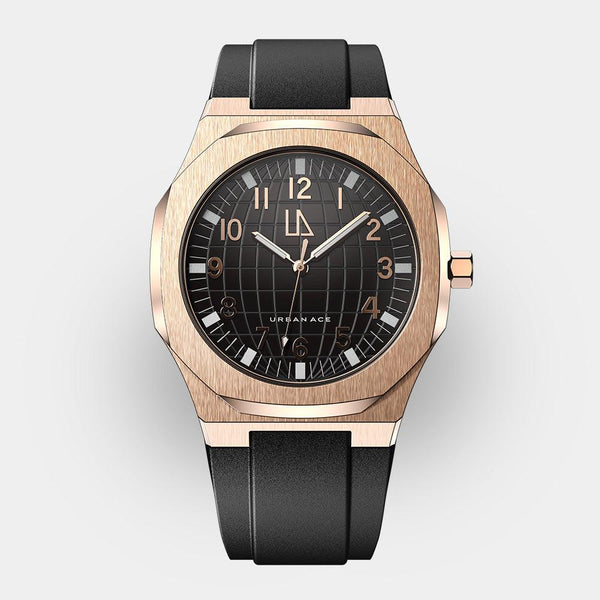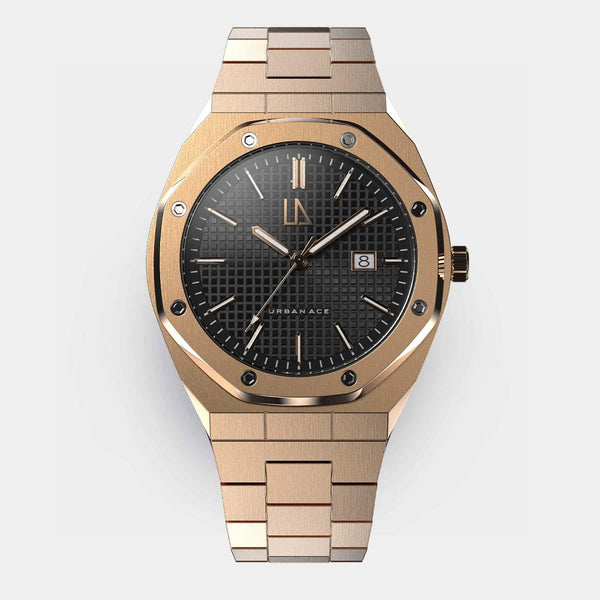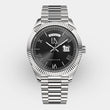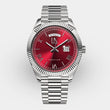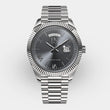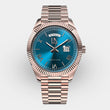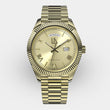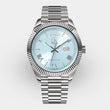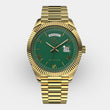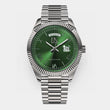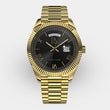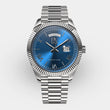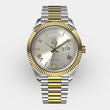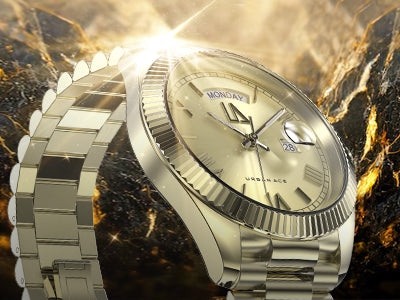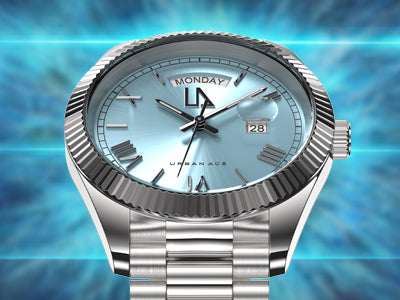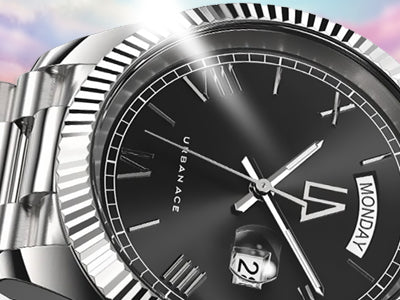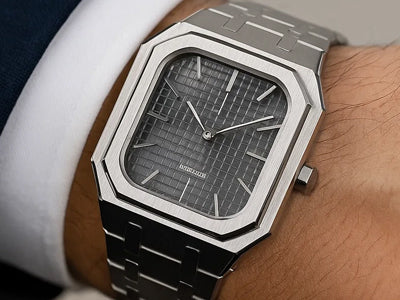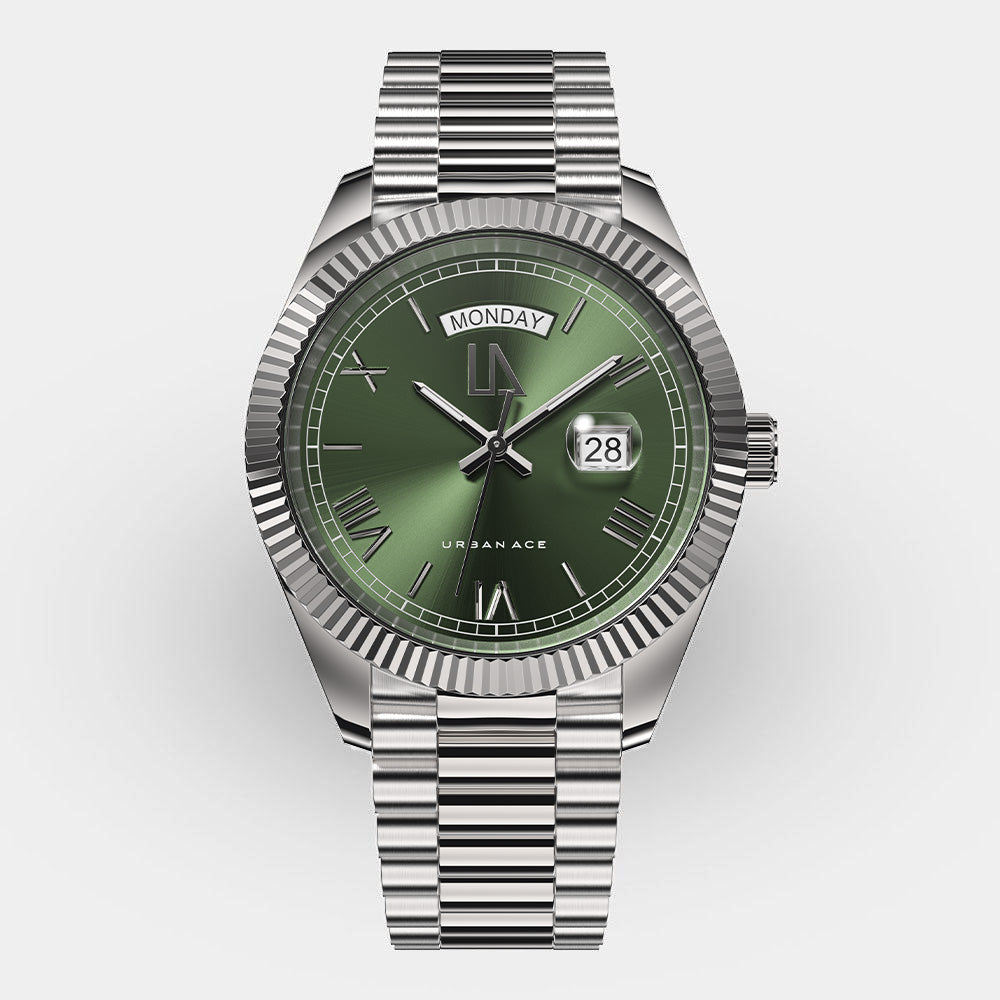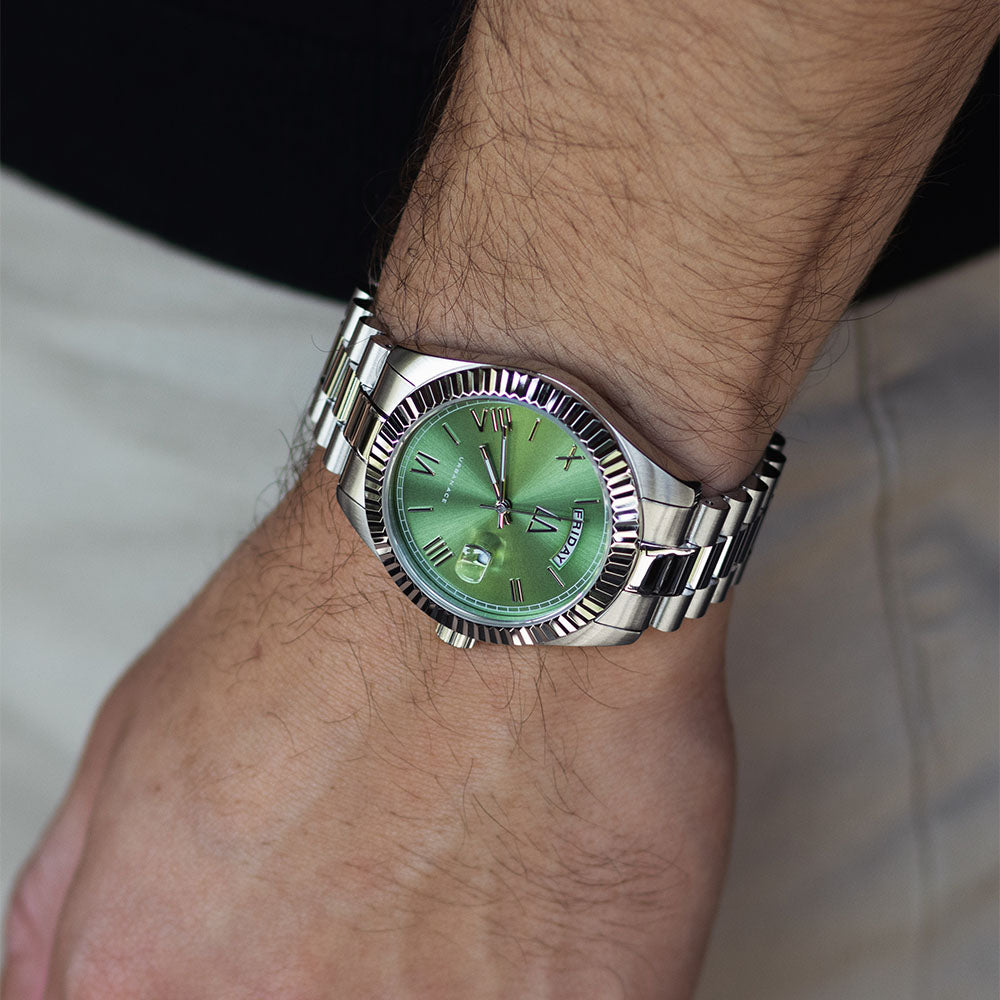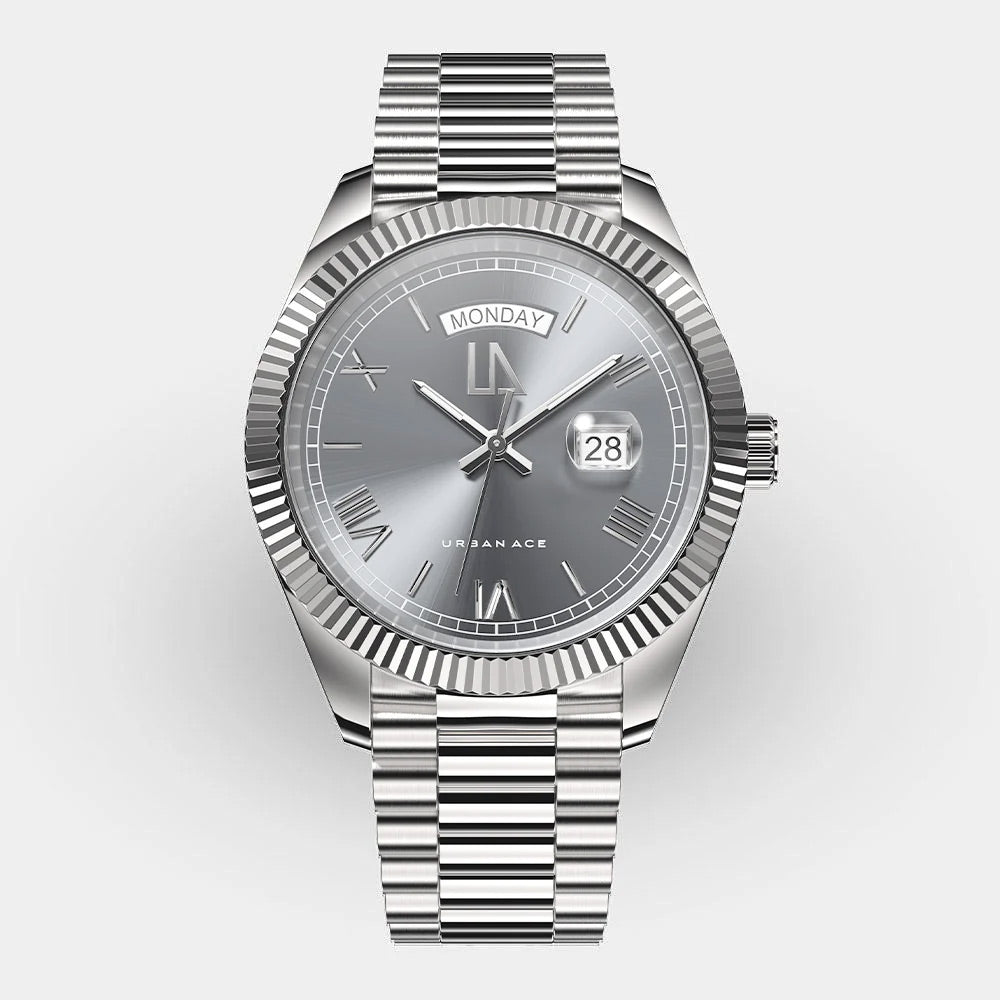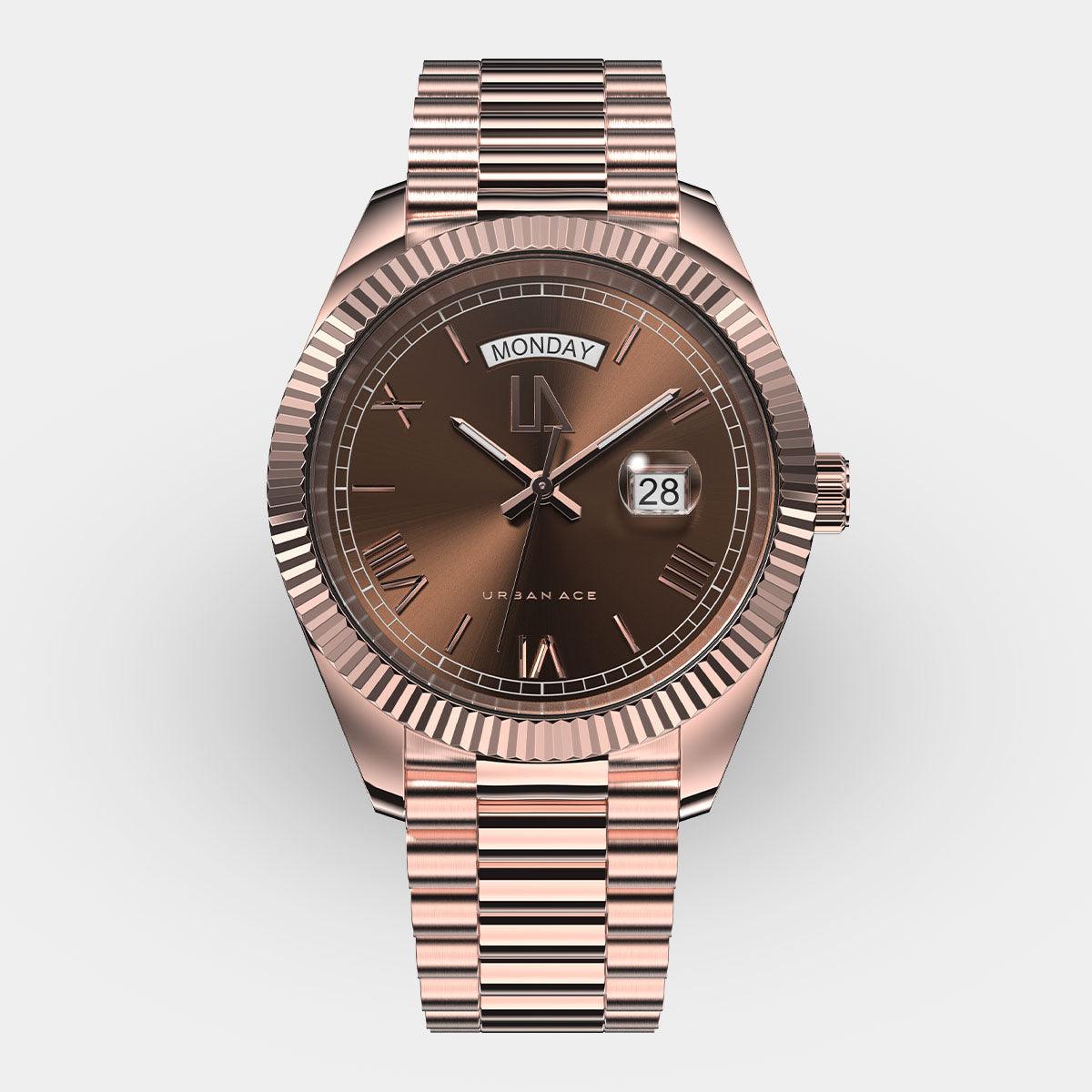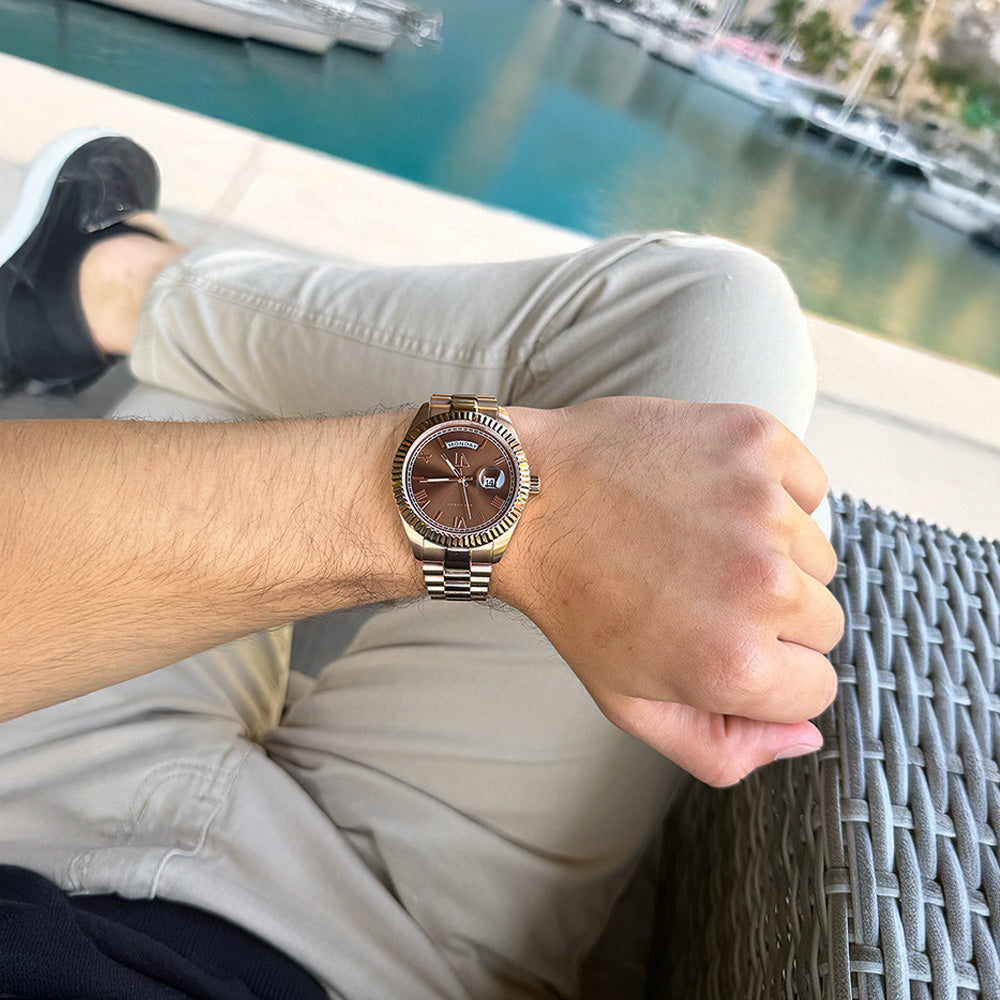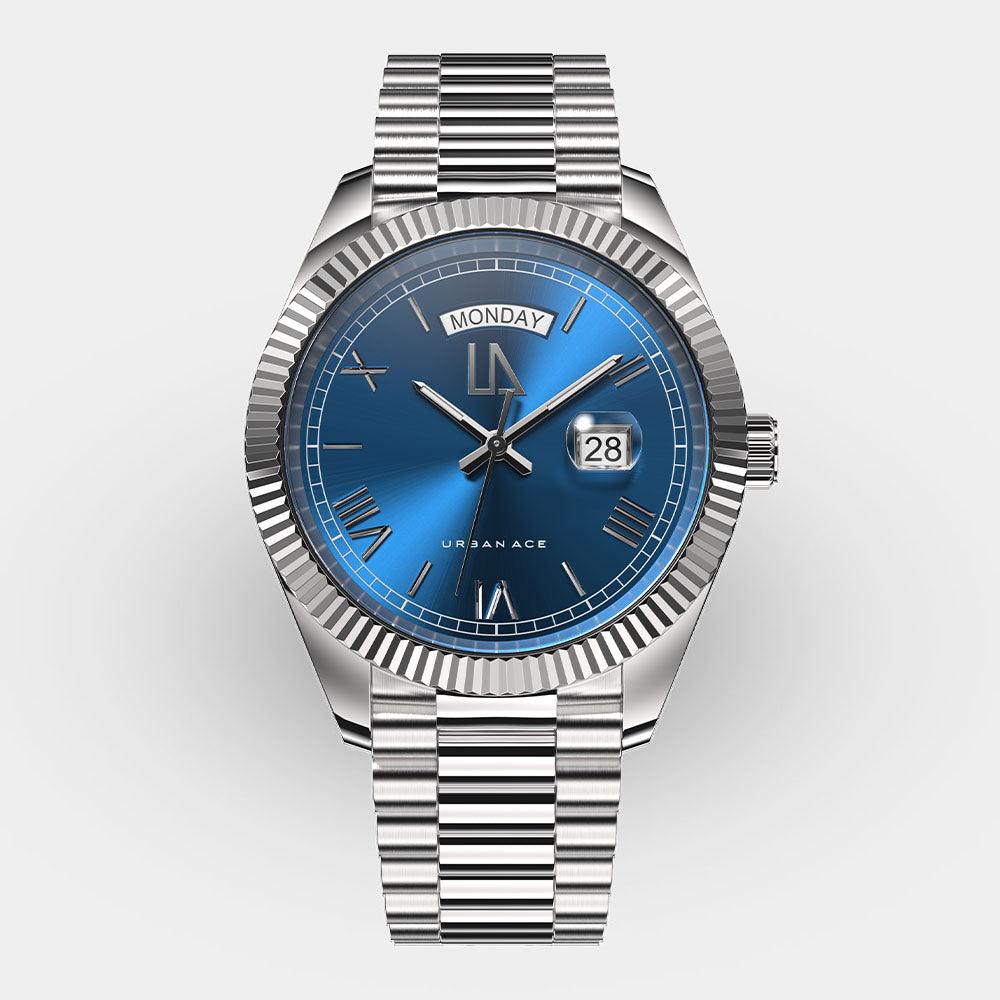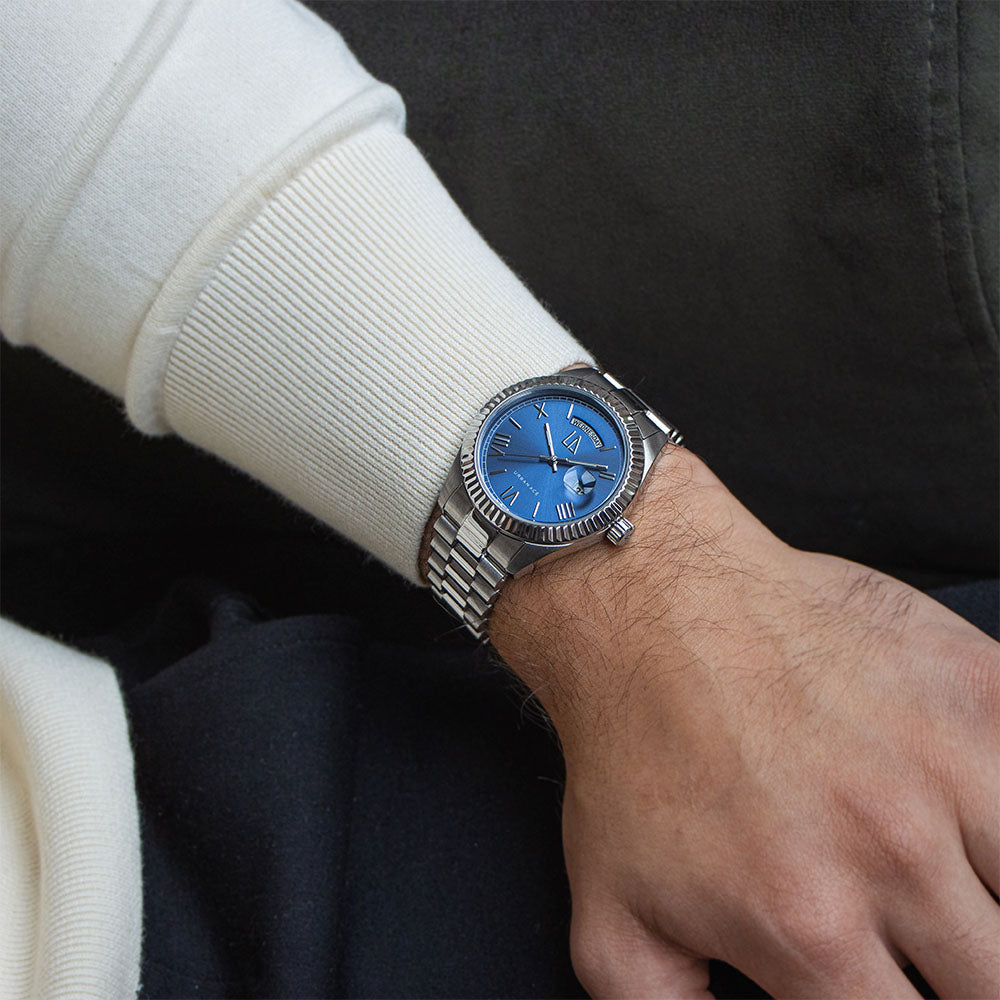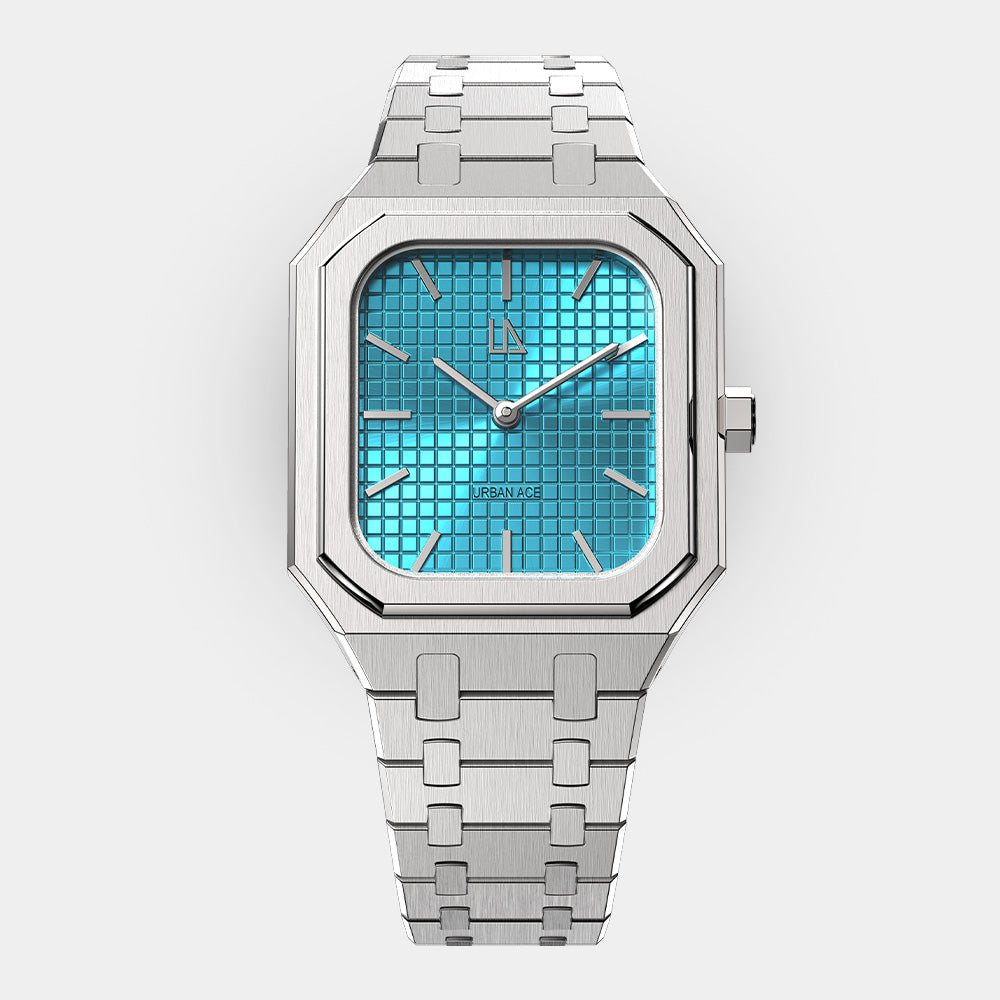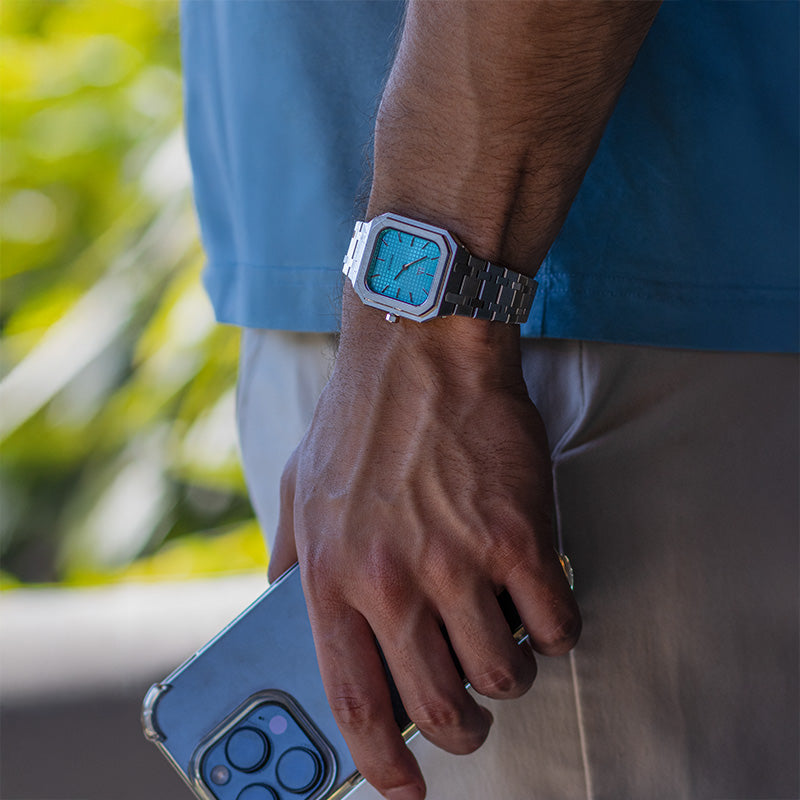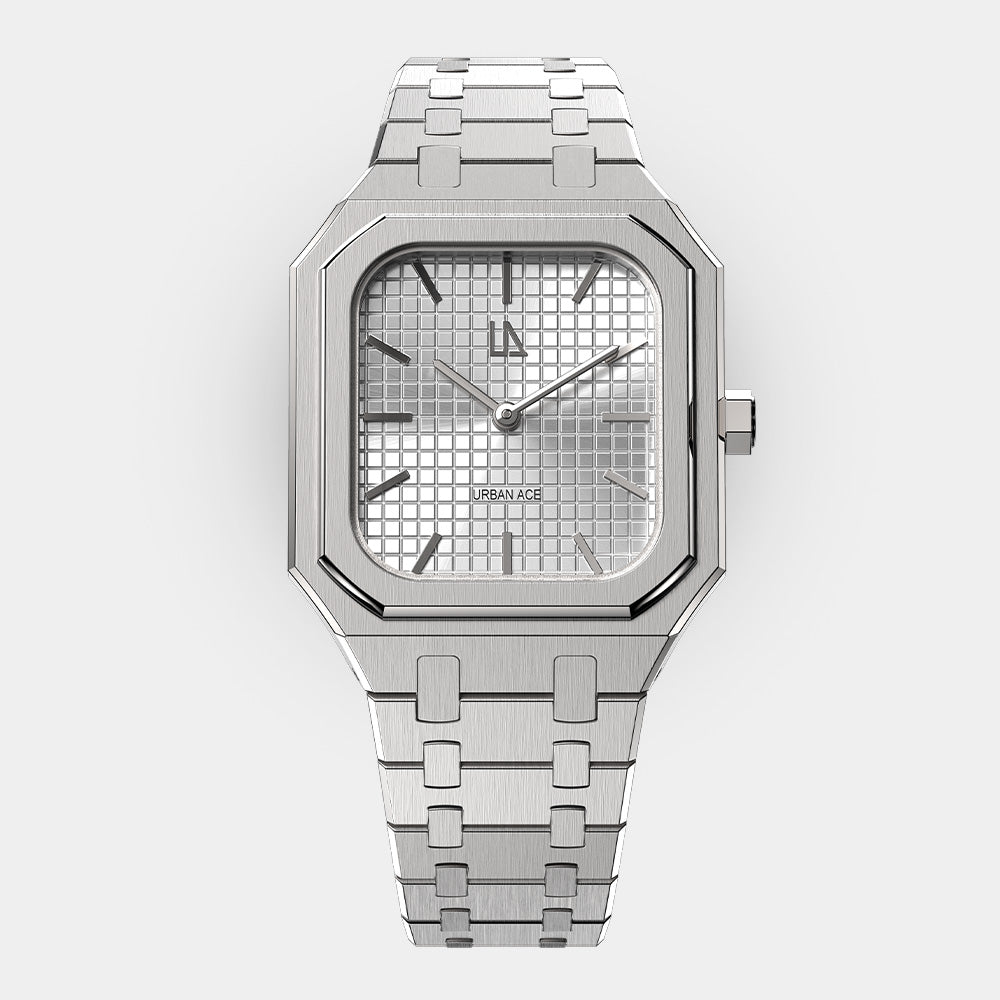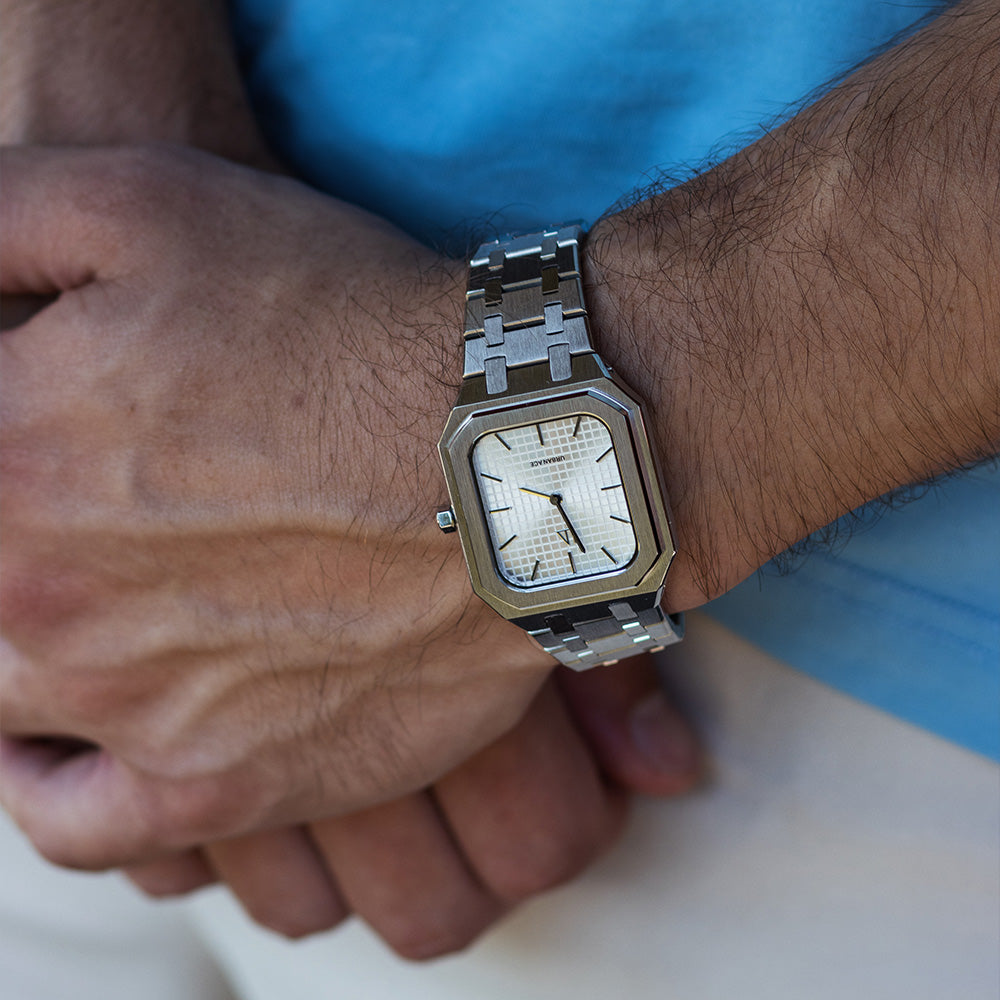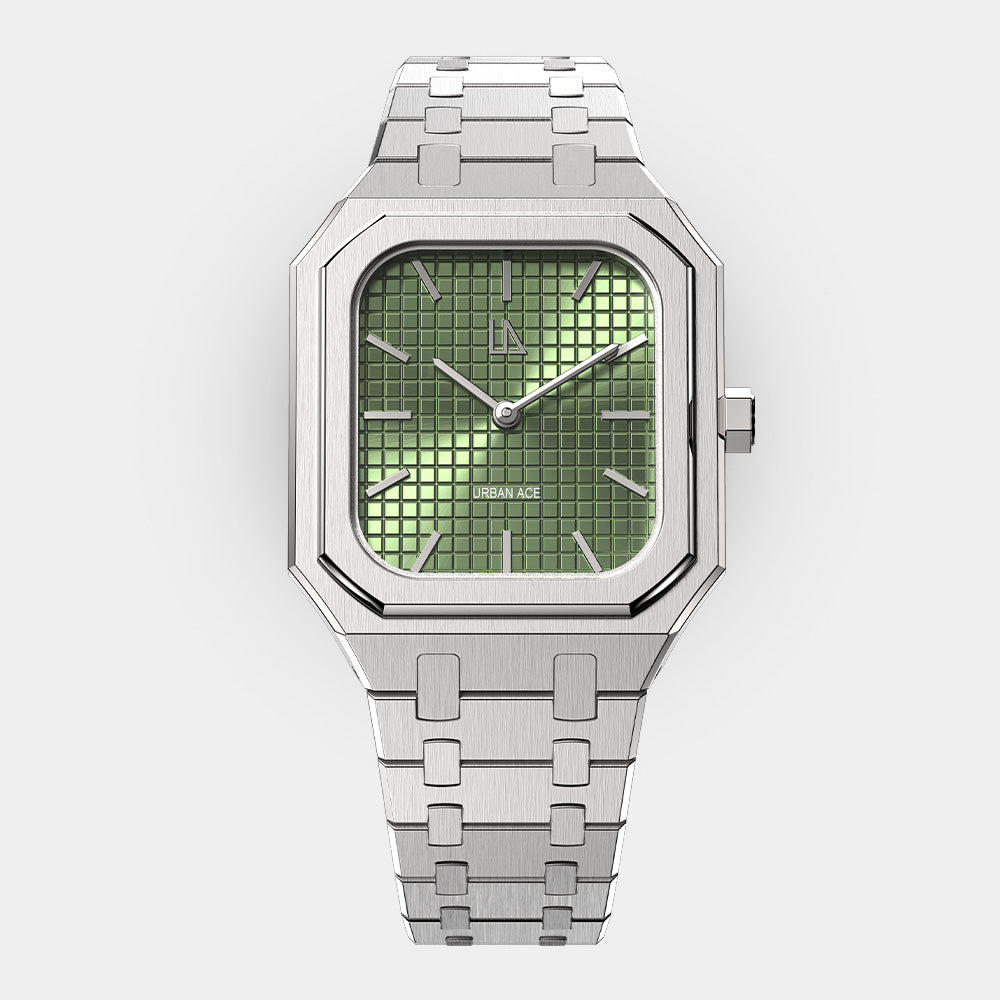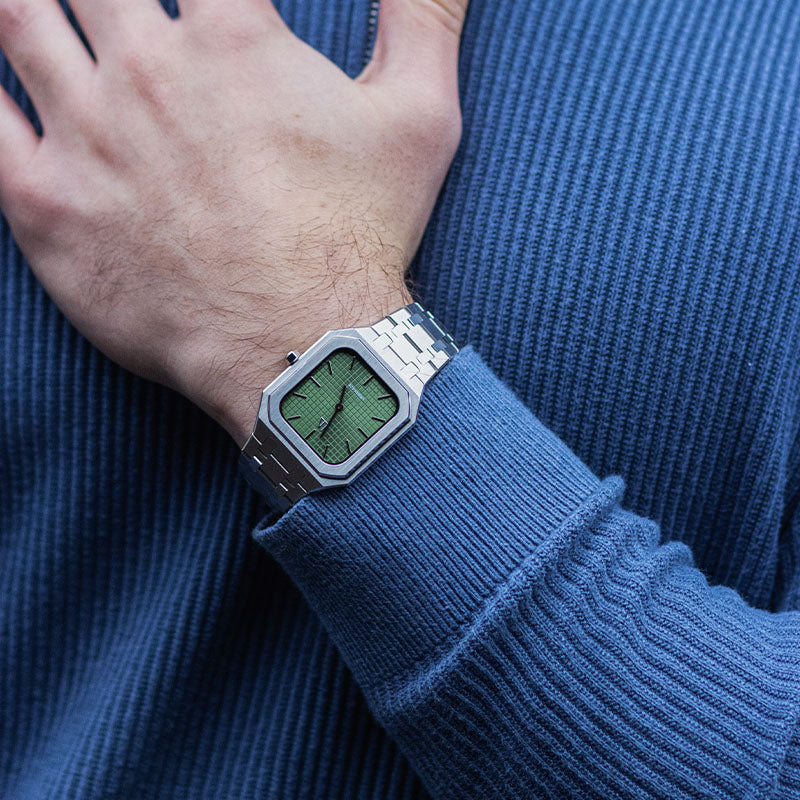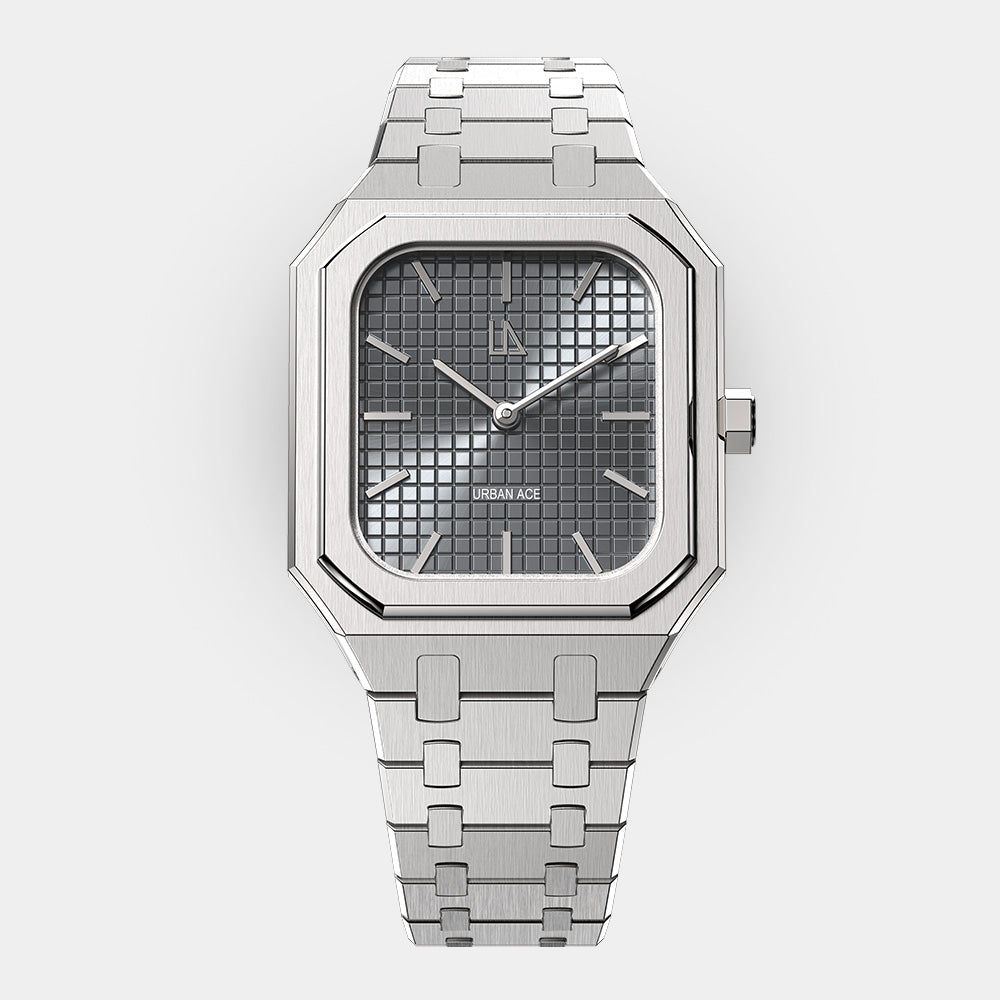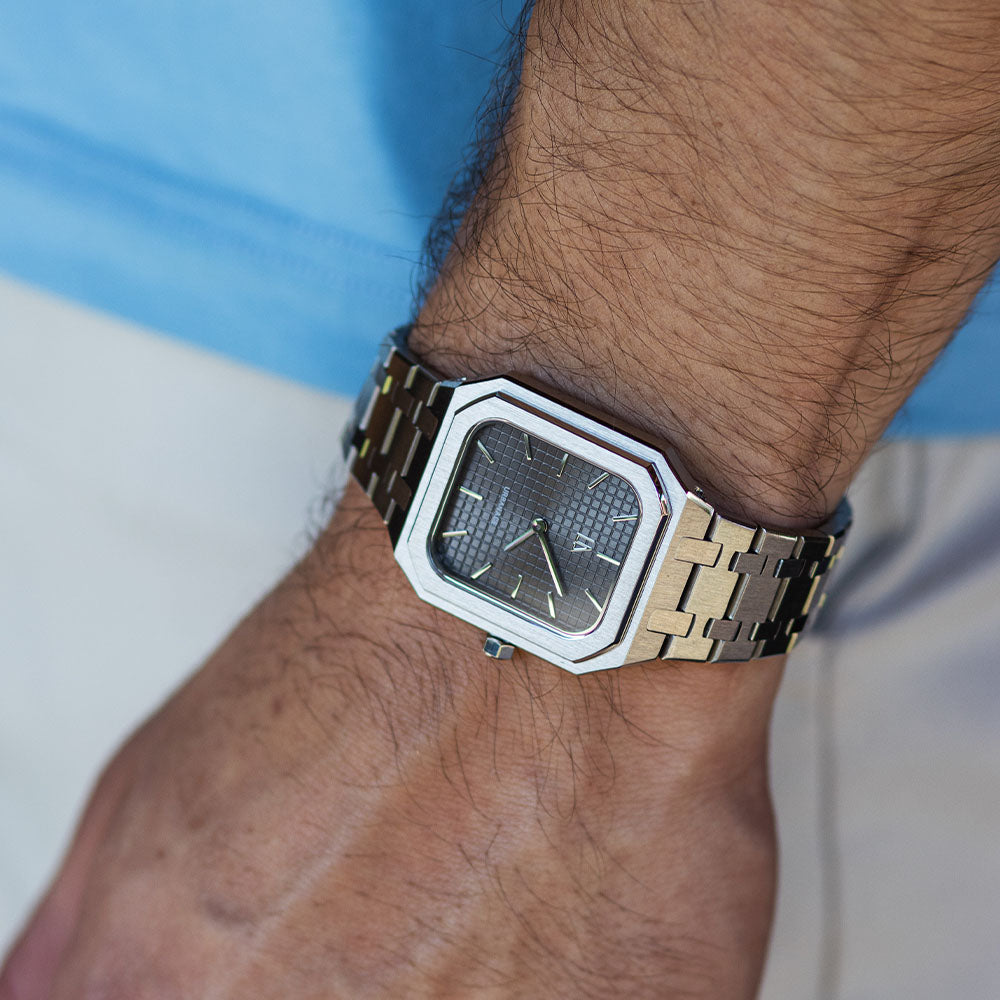Mechanical watches for men are truly timeless
What are mechanical watches?
First, let's explain what mechanical watches for men are: Mechanical watches are timepieces that operate without a battery. The watch gets its power by winding the crown at least once a day. The crown is located on the side of the watch, and you turn it. Turning the crown winds the mainspring inside the watch. This wound mainspring then supplies energy to the movement, which is how your mechanical men's watch works!
Overview of quartz, mechanical and automatic watches listed:
| Quartz | Mechanical | Automatic |
| Battery | Wind-up (manual winding) | On the move (self-winding) |
| Accurate | Slightly less accurate | Slightly less accurate |
| Deviation ± 15 sec. per month | Deviation ± 5/30 sec. per day | Deviation ± 5/20 sec. per day |
| Less maintenance | More maintenance | More maintenance |
| Less expensive to purchase | More expensive to purchase | More expensive to purchase |
A mechanical men's watch works without batteries!
So is a mechanical watch also automatic?
An automatic watch is essentially a mechanical watch, but with a special weight (rotor) that rotates with your wrist movements. These movements automatically charge your watch! This means you don't have to wind it manually as long as you wear it regularly.
Does a mechanical watch stop quickly?
If you don't wind a mechanical watch , it won't get any power. So it might stop running after just a day. With an automatic watch, it works a little differently. If you don't wear an automatic watch for a long time, it will also stop running because the mainspring isn't being wound anymore. You can then restart it by winding it manually or by wearing it for a while. The power reserve indicates how long a watch "runs." For example, a watch with a 30-hour power reserve will run for about 30 hours without needing to be wound!
The power reserve indicates how long a watch will 'run'!
The main features of a mechanical watch are:
- Works on the basis of a winding mechanism
- No battery needed
- Complex interior
- Often handmade and highly detailed
How does a mechanical watch work?
A mechanical watch works by using a mainspring that stores energy when the crown is turned. This spring relaxes... slowly releasing the stored energy. This allows you to properly tell the time on your watch!
The most important parts of a mechanical watch are:
- Winding spring: Provides energy storage.
- Balance wheel: Regulates the precision of the clockwork.
- Anchor mechanism: Controls the energy output.
- Gears: Drive the hands.
Is a mechanical watch accurate?
Good mechanical watches have a deviation of a few seconds per day. Which is quite impressive without a battery, of course. A mechanical watch often deviates slightly in practice. The brand is important here. Because the quality of the components and the precision of the watch's manufacture ensure that the watch doesn't deviate!
What makes a mechanical watch deviate:
- The quality of the parts
- The precision of the assembly
- Temperature differences
- Position of the watch
- Regular maintenance
A mechanical watch deviates slightly every day...
Popular brands of mechanical watches
Some of the most respected brands in the world of mechanical watches include:
- Rolex : Known for its precision and durability.
- Omega: Innovative and a favorite in the sports world.
- Patek Philippe: Known for its craftsmanship and value.
- Tag Heuer: Sporty mechanical watches of Swiss quality.
Differences between mechanical and automatic watches
The main difference between mechanical and automatic watches is that mechanical watches require hand winding, while automatic watches are powered by wrist movement.
Advantages of a mechanical watch:
- More control over the power reserve (so you can determine this yourself)
- Mechanical watches often have a nice vintage look
Disadvantages:
- Must be wound regularly by turning the crown
- More fragile than quartz watches due to the innovative interior
- The price: they are a bit more expensive
- Regular maintenance is recommended!
A quartz watch works thanks to a battery and deviates almost exactly!
What is the difference between a mechanical and quartz watch?
A mechanical watch works because the mainspring is wound. A quartz watch works because of a battery. A mechanical watch has a slight deviation. A quartz watch is much more accurate and has almost no deviation! With a quartz watch, you need to replace a small battery every one to three years. With a mechanical watch, you need to have it serviced at least once a year.
Differences between quartz and mechanical listed:
| Quartz | Mechanical |
| Battery | Wind-up |
| Accurate | Less accurate |
| Deviation 15 sec. per month | Deviation 5/15 sec. per day |
| Less maintenance | More maintenance |
| Less expensive | More expensive |
Quartz isn't all that bad!
Watch the film below explaining quartz watches:
Maintenance and sustainability
Mechanical watches require regular maintenance to keep functioning properly. Some maintenance tips include:
- Store your watch in a dry place.
- Have it professionally maintained every 3-5 years.
- Avoid strong shocks and magnetic fields.
Do you want to buy a mechanical watch?
With proper maintenance, a mechanical watch can last for generations, making them valuable heirlooms. Do you want to buy a mechanical watch or would you prefer a quartz watch? The choice is yours! For all our Urban Ace watches, see: luxury men's watches .



